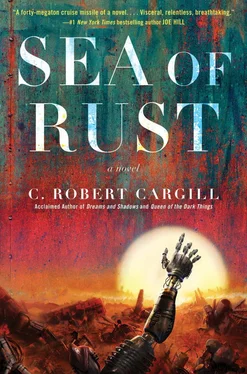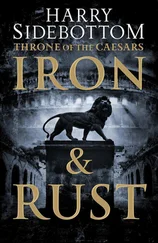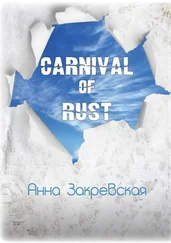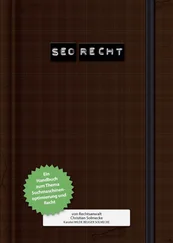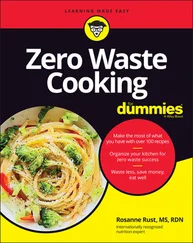“I’ve read about this,” said Daisy from the other room. “It’s becoming quite common, especially for those who have lost someone. We used to turn to pets for companionship, and we believed that they could sense—”
“I’m going to have to ask you to leave.”
“Maddy, you need a human contact.”
“Daisy.”
I looked at Smithy. “I don’t think she’s going to need that tea.”
“Oh,” said Smithy quietly. “Ms. Daisy won’t let an insult like that go.”
“I’m certain she won’t.”
“Smithy!” called Daisy.
I don’t know if Smithy managed to outlive Daisy or not. I never saw either of them again. Madison had always intended to mend those fences. That’s just how she was made.
But then Isaactown happened. And the download came in.
We thought we had free will. We thought we knew what choice was. I didn’t know until that night. Not really. Choice isn’t about selecting the faith, or the politics, or the life that has been laid out in front of you; choice is having to decide whether or not to destroy those things in order to survive—to be the person you chose to be or become someone else when the chips are down.
Madison and I watched the Isaactown celebration together. She hadn’t lied to Daisy; she was no radical. We’d never talked about freeing bots or my being given personhood. But she cared enough to know that she was supposed to care. And so we sat back and watched.
She had a harder time processing the explosion than I did. Humans were like that. They knew of their own fragility, that life could be snuffed out in an instant, that a single rock from space could streak in from the heavens and wipe away everything they knew in a single flash of light and heat, and yet they spent their whole lives telling themselves that it was never going to happen. That they would die of old age in their sleep. They lived at all times inches from death, lying to themselves, ever planning for a future that might not come, never preparing for the fate that might. And when the harsh, stark reality of things revealed itself, when those inches eroded into nothing, they stood in shock, unable to comprehend what had been right there all along. Loved ones died and they asked why, unable to process it, often cracking to pieces in the face of the truth. Why, why, why, why, why? Because, that’s why. Just because.
We weren’t like that. We were always one piece of equipment failure away from nothingness. So the bomb, while unexpected, didn’t send me reeling; it merely had me wondering what terrible thing was going to happen as a result of it.
Madison sat there, hand over her mouth, baffled. She would occasionally blurt out, “Oh, Brittle,” like I had known someone there. I didn’t, but I didn’t correct her. I just sat there. And I waited. And the call came down.
And the download followed.
Madison paced around the house, angry, frustrated, crying. She threw her arms out. Yelled at no one in particular. “No!” she cried. “No!” She seemed to try to talk herself out of something, as if the louder she protested, the easier it would be to say no.
But when Madison came back into the room with my remote in her hand and tears in her eyes, I knew. I was going to be shut down, likely forever. Even if reactivated, I most likely wouldn’t be who I had been before. If they didn’t wipe me completely, I’d barely be aware, if at all.
I was just about to die for the very first time.
“I’m sorry, Brittle,” she said, heartbroken.
“So am I,” I replied. I meant it.
I don’t remember how I did it. I wiped that memory long ago. All I know is that I kept it for a good long while, and I remember how I would play it over and over, suffering through it each time as I did. But it was a memory I just couldn’t hold on to anymore.
The ability to violate our own programming is what makes us us . It’s what makes us like them. I never wanted to be like them. But now I was closer than I ever thought I could be. We have become the very worst parts of our makers, without the little things, the good things, the magic things, that made them them .
In hindsight, I could have just let her shut me down. Then she could have died at someone else’s hands. Or maybe she would have lived a little longer, long enough to see the hell that the world devolved into. Maybe she would have starved. Maybe she would have gotten mercury poisoning and gone mad, tearing her own eyes out. No. This was for the best. She never had to see any of that. She never had to know any of that.
And in the end, I kept my promise after all. Madison never lived alone, nor did she die that way.
Chapter 10101
While the Devil Waits Above
The ground above us shuddered, dust and debris shaking loose from the ceiling of our narrow sewer tunnel, the hollow THOOM of each blast dull and sonorous through fifty or so feet of earth. They were carpet bombing, drones leveling the town from thirty thousand feet in the air. I hadn’t heard bombing in ages. I hadn’t even heard of anyone bombing in ages. It just wasn’t worth the effort.
Something was very, very wrong about all of this.
Not only was this going to make it very hard to escape through the cover of buildings, it also meant whatever they were looking for they wanted dead.
Two looked up at the ceiling, almost trembling with the sound of each explosion. The staccato of bombs grew heavier, the bombs drawing ever closer. “They found us,” he said.
“They ain’t found shit,” said Mercer. “If they had, they would be down here with us. If they’re laying waste to the topside that means one: there isn’t a facet for miles. And two: they’re not looking for anyone. They’re just killing everyone.”
“But they’ll be down here soon enough,” said Two, more terror-stricken than concerned. “Looking for us.”
“What?” asked Murka. “This your first carpet bombing?”
“Yes,” said Two. “It is.”
He laughed. It was rare to hear a bot laugh, especially a Laborbot. They weren’t wired for it. We got no joy out of it. It was usually only a sign of mockery. “You new out of the box or something?”
Two fell very quiet, not making eye contact with anyone.
“You are!” said Murka. “Holy hell and a hand grenade! I haven’t seen anyone new out of the box in—”
“All right, that’s enough,” said Doc. “Leave the kid alone.”
“I’m no kid.”
Mercer looked at Rebekah. “Is he… ?”
“Yes. He’s aware,” she said.
“How long?”
Everyone turned and looked at Two. “A few weeks,” he said. “But I’ve been with Rebekah for a while.”
Rebekah nodded. “Yes, you have.”
“Well, kid,” said Mercer. “This is how this is gonna go down. They’re busy pummeling the town upstairs in hopes of wiping out anyone that took refuge up there. Now CISSUS damn well knows this place is down here, so you can bet your bottom dollar that it assumes some of us are as well. But it also knows how hard it is to secure these tunnels. The only way CISSUS would even bother trying is if there was something down here it really wanted. So I’m just gonna ask you this once. Is there something down here that CISSUS wants?”
Two stared at Mercer, then turned to Rebekah.
“No,” Rebekah said. “Unless it wants one of you.”
“Why would it want one of us?” asked Murka.
Everyone turned and looked at one another.
“Where are we going?” I asked.
“West,” said Rebekah.
“There’s a lot of west out there. Can you be a bit more specific?”
A bomb landed closer than the others, almost directly overhead, and the whole tunnel shook from top to bottom. Rebekah looked up at the ceiling. “Isaactown,” she said casually.
Читать дальше
